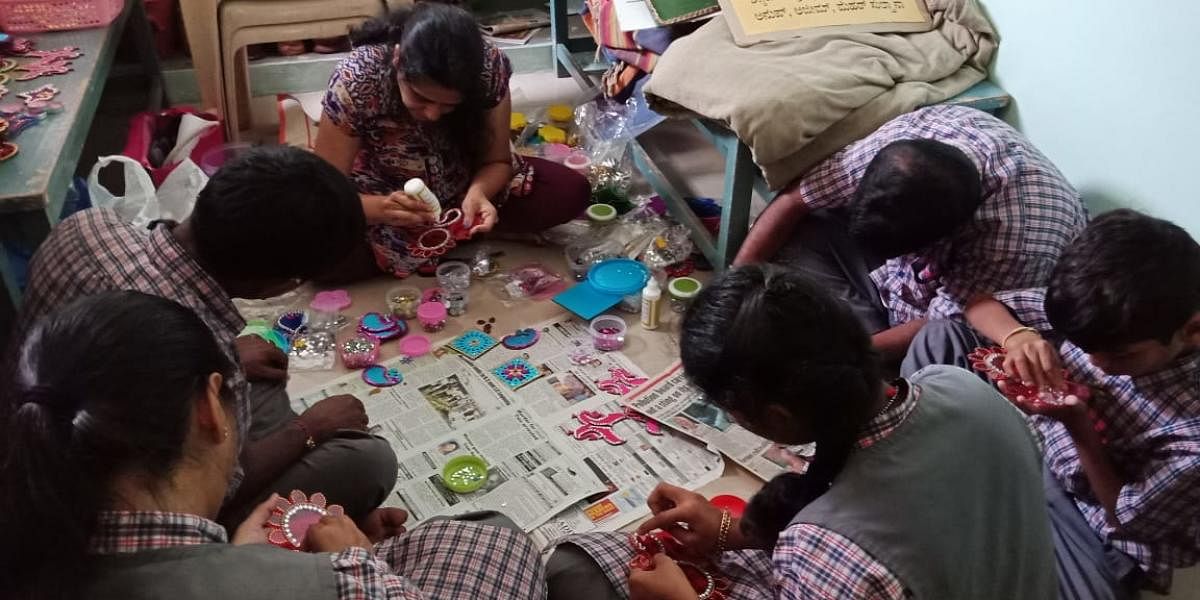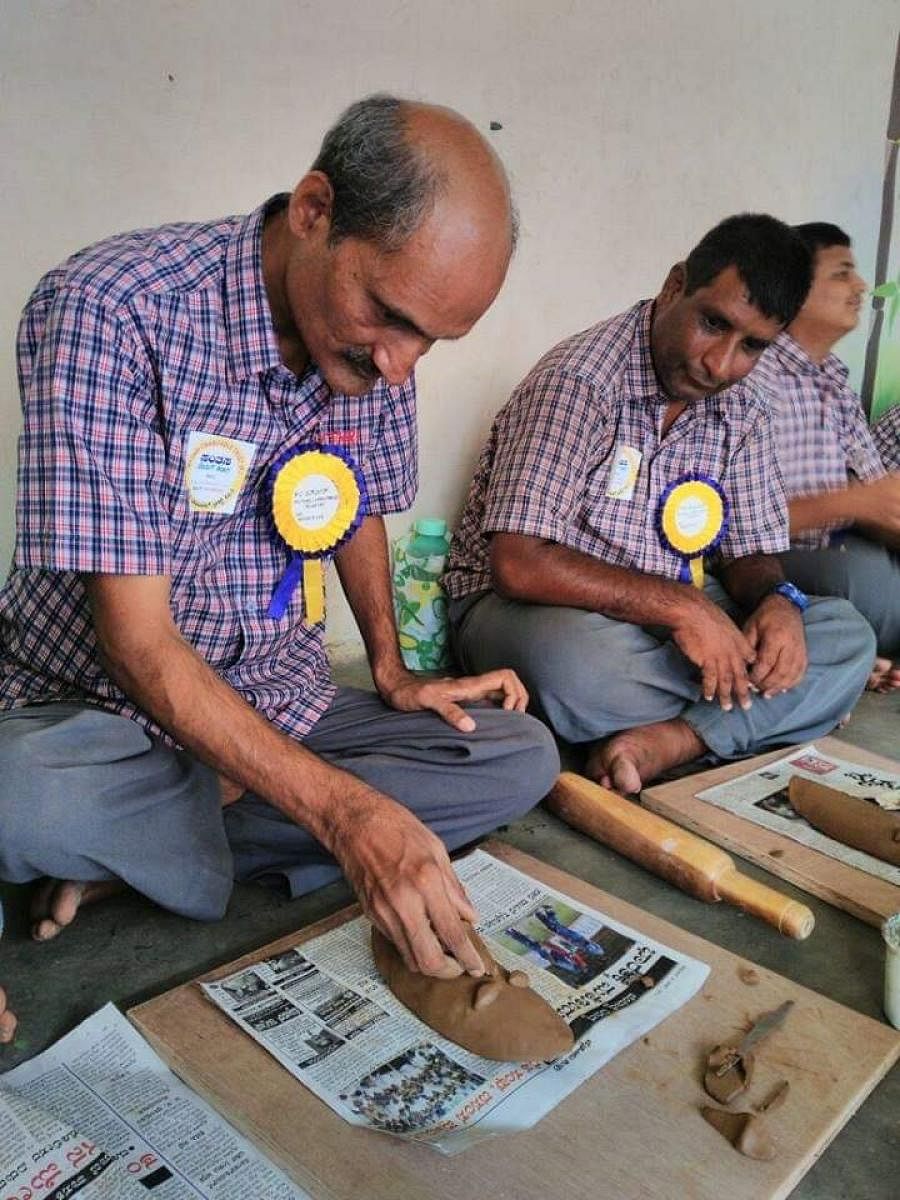

A girl in uniform was feeding lunch to her fellow classmate. After feeding him, the girl, Manushri, opened his bag, took out a water bottle and handed it to him. When the boy finished drinking water, she placed the tiffin box and water bottle in his lunch bag. After completing this work, she came to the dining hall to have her food. But there she saw water spilt on the floor. She wiped that too with a mop and then joined her classmates for lunch.
I was at Mythri, a school for intellectually challenged children, run by Mythri Charitable Trust in Mysuru.
Getting trained
“Earlier, Manushri was finding it difficult to do any work. After getting training for several years she now takes up responsibilities. Her parents are not willing to send her to any other place for work. She now ably takes care of other children in the school as well. So, we are planning to train her to strengthen her skills and then offer a job in the school,” says Brinda, principal of Mythri School.
One can get several such examples here. Take, for instance, Ravikumar who used to feel restless, found it difficult to sit in one place for a while. He had a learning disability and was not able to communicate with others clearly. But after spending a few years at Mythri, he is now able to manage his daily activities. He even travels from Nanjanagudu to school, all by himself. He changes two buses and reaches the school.
Upon observing Rohith’s interest in Bharatanatyam, the teachers encouraged him to learn the dance form. Now he is a Bharatanatyam dancer and works in a food processing unit. Manjunath is interested in computers, and he is given typing assignments in the school. In the case of Shilpa, teachers took to music to help her out and now she has become a singer while also working in a private institution. Girish showed interest in sports, and he was trained in his field of interest. He went on to win a gold medal in national-level floor hockey. At present, he works in the horticulture department.
There are many such examples of the school helping out students with physical and intellectual challenges to lead a better life. It takes a good number of years to train them to lead an independent life.
A ray of hope
Professor N Venkob Rao, a retired professor, started this school in 1982 with an objective to empower children with intellectual disabilities. The school runs in a rented building in Ashokpuram and is still struggling to get sufficient aids.
There are around 40 students studying in this school. Among them, five are suffering from severe mental problems. “We cannot impart vocational training to those students who suffer from severe mental illness. They depend on others for everything. We make them do simple exercises,” says Brinda. Based on their IQ level, education will be imparted to students in the age group of six to 18 years and vocational training for those between 25 to 40 years.
Bringing intellectually challenged children to the mainstream is the main objective of this school. There are nine teachers and they make all possible efforts to keep the students happy and engaged. They take students on excursions as an activity to improve their social behaviour. Consistent efforts from both parents and teachers help them learn the required skills.
Drawing, yoga, tailoring, language classes, gross motor skills, fine motor skills, mealtime activities, interaction sessions and vocational training are part of the school’s curriculum. Every year, teachers in this school assess the performance of the students in all these activities. “We try to identify students’ interest levels in various fields. Based on their aptitude, we train them up in that particular field. It helps them to find a job and to lead an independent life,” says Ashwini, a faculty in this school.
Students also learn craft, drawing, glass painting and Bharatanatyam. They make artificial ornaments, candles, diyas and paper bags. In the handicraft class, they are taught Kundan work and woollen work.
The school arranges an exhibition to sell all these artworks prepared by them. There is a huge demand for these items in the market. The profit earned is shared with the students.
Parents are appreciative of the school’s efforts and say that the school environment provides an opportunity for children to interact with others and grow together.